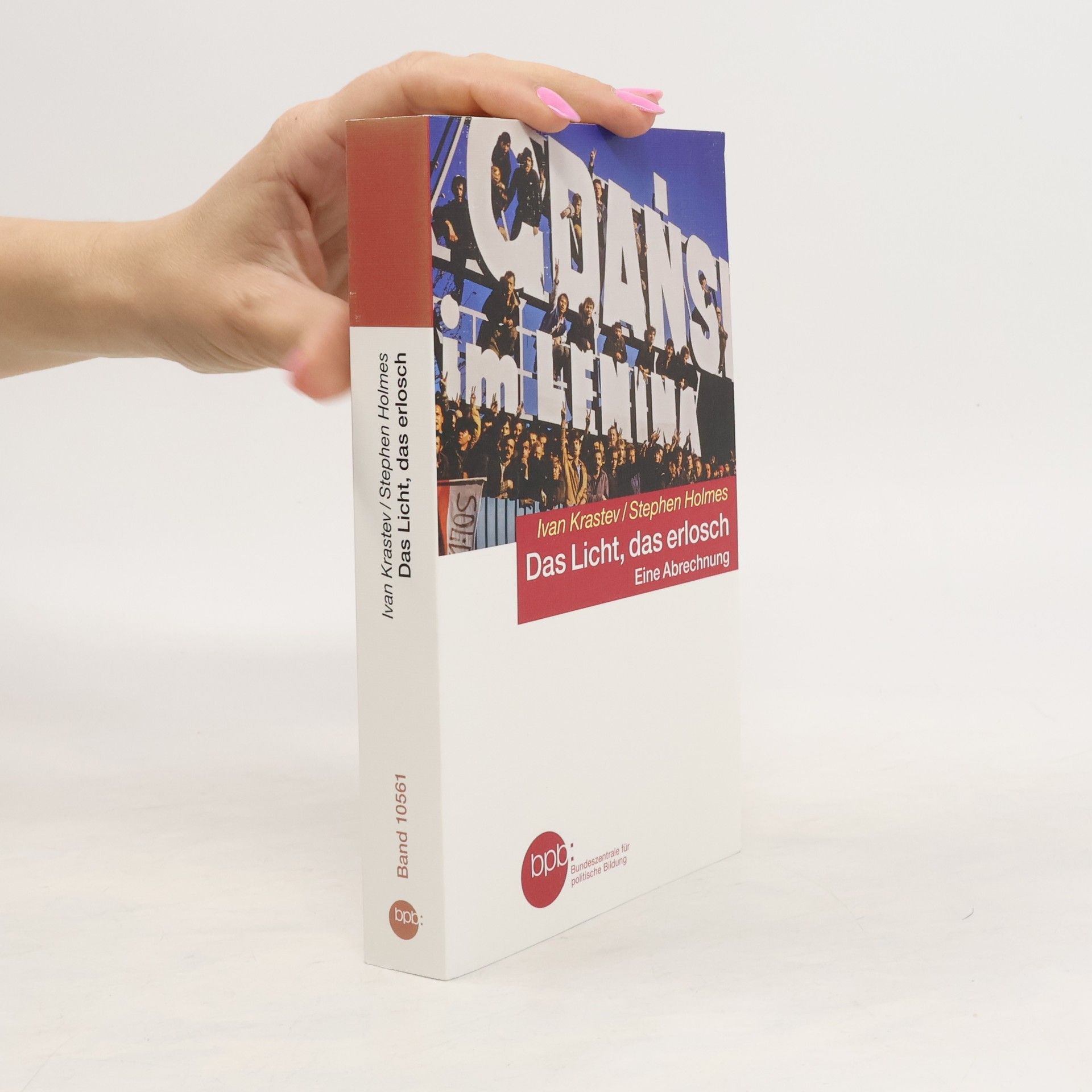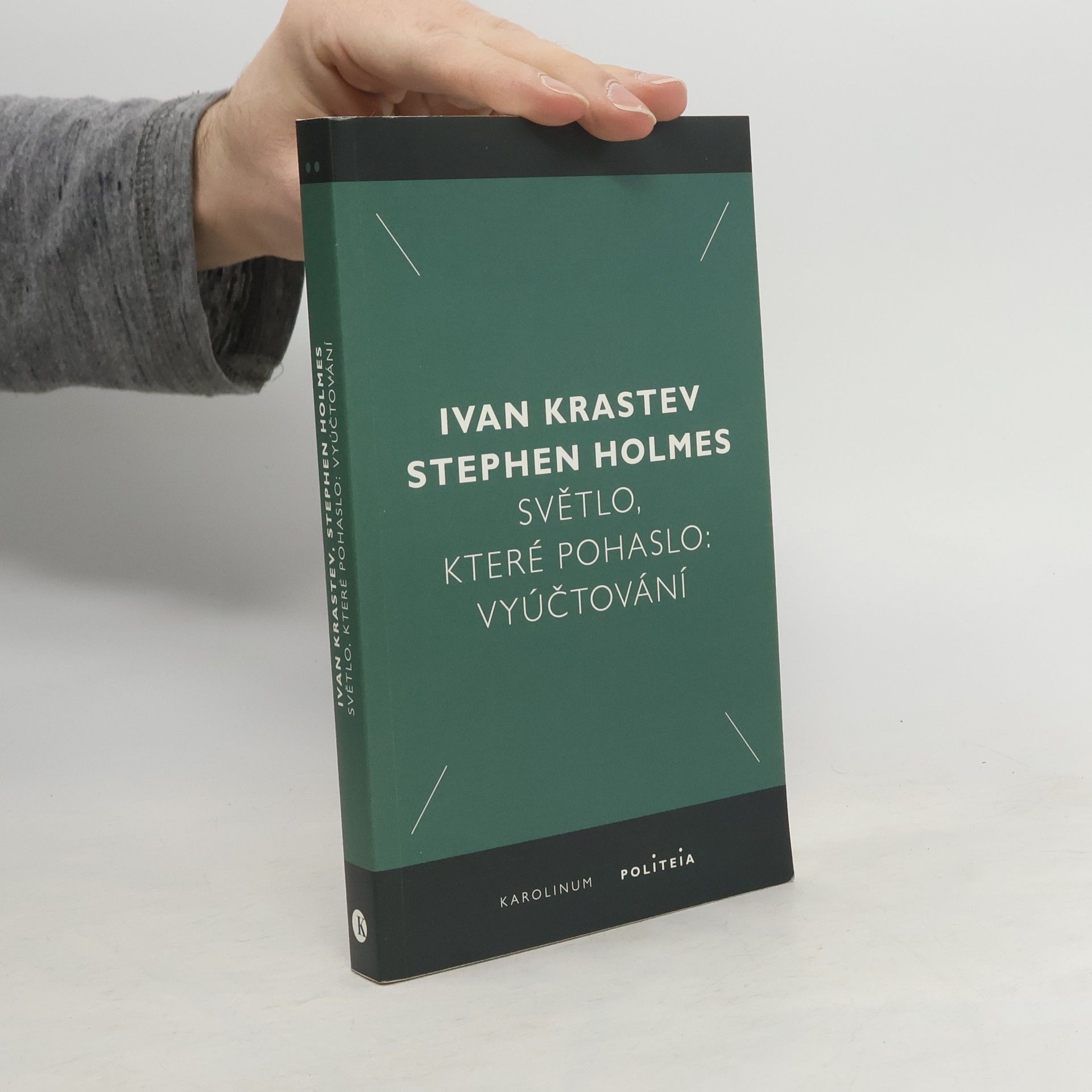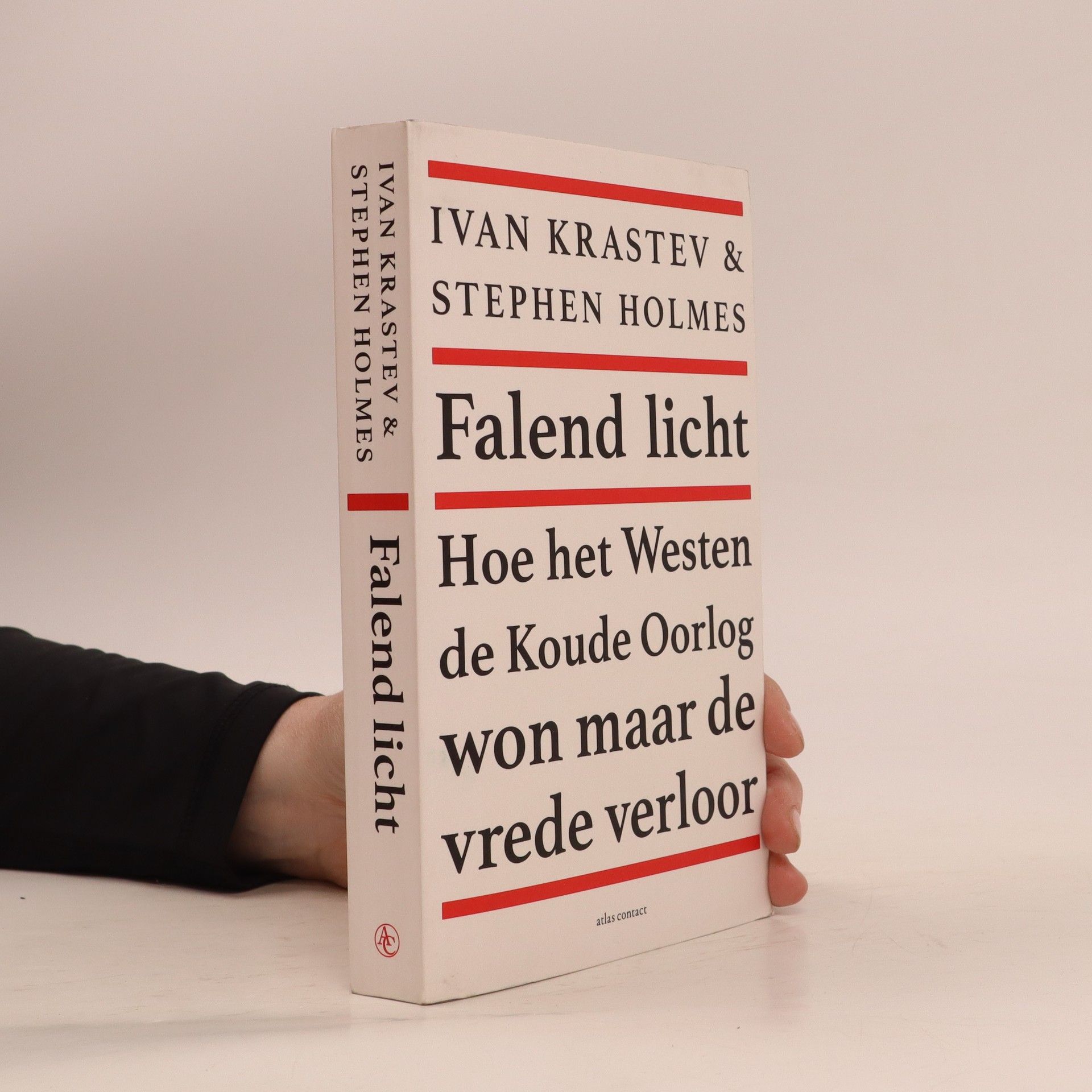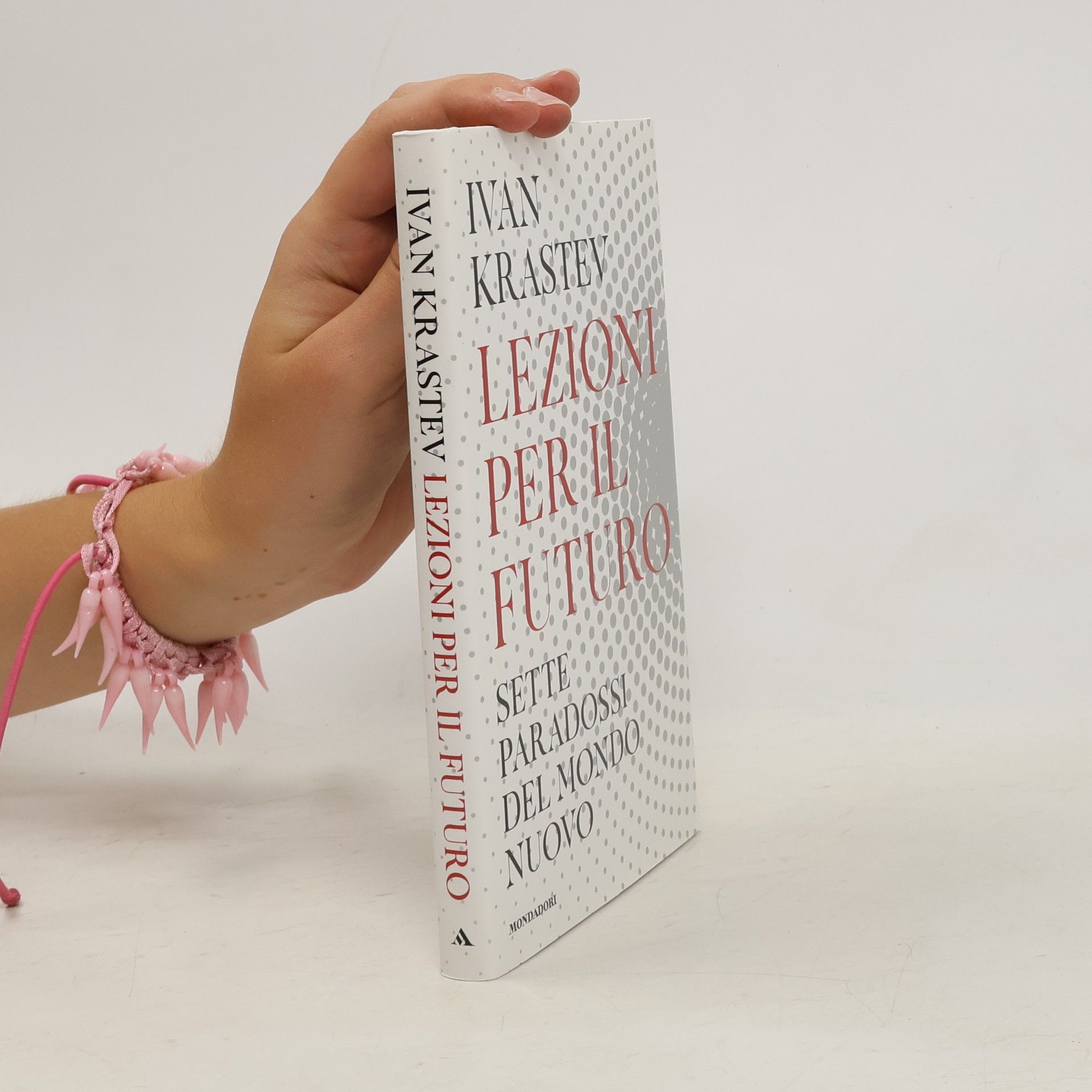Analyse van de oorzaken van het falen van het proces van democratisering in Oost-Europa na de val van de Berlijnse Muur in 1989.
Ivan Krastev Boeken
Ivan Krastev is een vooraanstaand politiek denker wiens werk zich verdiept in de complexiteit van de hedendaagse democratie en de uitdagingen ervan. Met een scherp inzicht in wereldwijde politieke trends en protestbewegingen ontleedt hij hoe wantrouwen en veranderende maatschappelijke obsessies politieke systemen beïnvloeden. Krastev's analyses reiken verder dan Europese crises om bredere kwesties van vertrouwen tussen burgers en hun leiders te onderzoeken. Zijn geschriften bieden inzichtelijke perspectieven op de huidige politieke dynamiek en de verstrekkende gevolgen ervan.







After Europe
- 136bladzijden
- 5 uur lezen
A impassioned defense of the European Union and a concise analysis of its present challenges and future In this provocative book, renowned public intellectual Ivan Krastev reflects on the future of the European Union—and its potential lack of a future. With far-right nationalist parties on the rise across the continent and the United Kingdom planning for Brexit, the European Union is in disarray and plagued by doubts as never before. Krastev includes chapters devoted to Europe's major problems (especially the political destabilization sparked by the more than 1.3 million migrants from the Middle East, North Africa, and South Asia), the spread of right-wing populism (taking into account the election of Donald Trump in the United States), and the thorny issues facing member states on the eastern flank of the EU (including the threat posed by Vladimir Putin's Russia). In a new afterword written in the wake of the 2019 EU parliamentary elections, Krastev concludes that although the union is as fragile as ever, its chances of enduring are much better than they were just a few years ago.
A FINANCIAL TIMES BOOK OF THE YEAR One of our most scintillating public intellectuals explores the political paradoxes of the pandemic and helps us think our way through it 'We are able to imagine anything because we are being besieged by something that was considered unimaginable...' Beneath the panic and bluster, beneath the confusing speeches and the conflicting advice, the Coronavirus pandemic acted, changing our world in the most profound ways. The tragic human cost and the economic devastation will be assessed and calculated for decades to come. But the pandemic also changed things in ways that are less easily expressed and understood. It has made bare the frayed contradictions of modern life. It has distorted things that seemed simple and settled. It has affirmed plain, uncomfortable truths. In this brilliant, thought-provoking essay, Ivan Krastev, one of our most interesting thinkers today, explores the pandemic's immediate consequences and conceives of its long-term legacy. Will things be different for the communities most harmed, and for those who escaped the worst? Where are we now with the US and China, with the UK and Europe? And how do we think our way through the unthinkable?
Ivan Krastev a Stephen Holmes se zamýšlejí nad vznikem a vzestupem hnutí a politických proudů, které se stavějí do opozice vůči liberalismu a které v posledních několika letech důrazně vyvrátily představu, že budoucnost bude nevyhnutelně liberální. Nacházejí zajímavé vývojové paralely mezi střední a východní Evropou, putinovským Ruskem a trumpovskými Spojenými státy. Tento vývoj spolu s nástupem populistických politiků vnímají jako důsledek zhroucení naděje na unipolární liberálně-demokratický svět, jemuž by dominovaly Spojené státy. Detailně se věnují řadě aspektů, které k této změně přispěly, ať už to byla vnitřní ekonomická krize ve Spojených státech, vylidňování ve východní Evropě, resentiment z napodobování Západu, k němuž byly tlačeny země bývalého sovětského bloku, nebo pokrytectví americké zahraniční politiky. Rozpad liberálně-demokratického řádu popisují věcně, byť zároveň s jistou nostalgií, ale i mírným optimismem při pohledu do budoucnosti.
Mit dem Mauerfall und dem Zusammenbruch der Sowjetunion wurde das Modell freiheitlicher Demokratie vermeintlich alternativlos. Heute zerbricht die liberale Welt vor unseren Augen. Populismus, Nationalismus und die Abkehr von freiheitlichen Werten begleiten ihren Niedergang. Der Westen hat den Kalten Krieg gewonnen und doch seine politische Strahlkraft verloren. Wie konnte es dazu kommen? In ihrer brillanten politischen Analyse argumentieren Ivan Krastev und Steven Holmes, dass sich das vermeintliche „Ende der Geschichte“ als der Beginn des „Zeitalters der Imitation“ entpuppt hat. Fast drei Jahrzehnte lang lautete der Imperativ für den Osten: „Imitiert den Westen!“ Dabei erwies sich, dass das Leben des Imitators zunehmend von Gefühlen der Unzulänglichkeit, Minderwertigkeit, Abhängigkeit und des Verlusts der eigenen Identität beherrscht wird. Eine erhellende Lektüre, die neue Erkenntnisse über die Ursachen der aktuellen globalen Krisen liefert. »Ivan Krastev ist einer der großen europäischen Denker unserer Zeit.« Timothy Snyder »Krastev zu lesen ist ein Genuss, denn in seiner stilistischen Kunst finden die Liebe zur Literatur, die politische Illusionslosigkeit und die Schönheit des Gedankens zusammen.« Elisabeth von Thadden, DIE ZEIT »Stephen Holmes ist einer der brillantesten politischen Philosophen Amerikas.« Tzvetan Todorov »Ivan Krastev ist einer der führenden Intellektuellen Europas.« Madeleine Albright
Už je zítra? aneb Jak pandemie mění Evropu
- 58bladzijden
- 3 uur lezen
Jak bude vypadat svět po koronavirové pandemii? A nežijeme v něm již nějakou dobu? Neučinila pandemie jen zřejmějšími dlouhodobé trendy? Jak by se měly na ekonomickou krizi v době deglobalizace připravit národní státy a jak Evropská unie? Ivan Krastev vyvolal na vrcholu koronavirové krize celosvětový zájem svým článkem o vlivu pandemie na budoucí společenské změny. Nyní navazuje esejí, ve které zkoumá politické a kulturní důsledky Covidu-19 jako laboratorního sociálního experimentu. Brilantně a provokativně analyzuje sociální dopady karanténní dystopie, návrat vládních intervencí, uzavírání hranic národních států, roli odborníků a krizového řízení v demokratických a autoritářských státech (big data government), etické otázky zdravotnických a ekonomických opatření, mezigenerační a mezinárodní solidaritu. Politologické analýzy a data z výzkumů historických pandemií kombinuje s příklady literárních zpracování či filozofických pojednání a ukazuje paradoxy proměněného světa, pro jehož obyvatele je pandemie základní společnou zkušeností.
Európa a pandémia: Ako nás zmení koronavírus?
- 106bladzijden
- 4 uur lezen
Aj svetoznámy politológ Ivan Krastev zostal počas pandémie koronavírusu v domácej izolácii. O novom fenoméne, ktorý za niekoľko týždňov zmenil celý svet, sa tak rozhodol uvažovať hneď zahorúca. Jeho najnovšia esej vychádza naraz vo väčšine európskych krajín. Esej Ivana Krasteva Európa a pandémia nie je predpoveďou toho, ako bude vyzerať svet po koronavíruse. A nie je ani manifestom toho, ako by vyzerať mal. Je to snaha pozrieť sa na svet obrátený naruby a pochopiť fenomén, ktorý sa zásadne odlišuje od všetkého, čo nás postretlo doteraz. Vieme, že koronavírus najviac postihuje tých, ktorí už nejaké zdravotné problémy majú. A keďže liberálne demokracie trpia jednou z najvážnejších chorôb – nedôverou ľudí v inštitúcie –, patria práve ony medzi najohrozenejších pacientov. Krastev je presvedčený, že Európska únia bude po tejto kríze celkom iná než pred ňou: môže sa rozpadnúť, môže sa premeniť na modernú kópiu stredovekej Svätej rímskej ríše alebo môže dosiahnuť strategickú autonómiu. Jedna vec je však istá už dnes: nie je to kríza, ktorú môže Európska únia len tak jednoducho prečkať. „Svet sa zmení nie preto, že by naša spoločnosť po tejto zmene túžila, alebo preto, že by existoval konsenzus o tom, akým smerom nás má táto zmena posunúť. K zmene dôjde preto, že cesta späť neexistuje,“ hovorí uznávaný politológ Ivan Krastev vo svojej najnovšej knihe Európa a pandémia.
Ist heute schon morgen?
Wie die Pandemie Europa verändert
Ein Virus war nötig, um die Welt auf den Kopf zu stellen. Wie wird die Welt danach aussehen? Ivan Krastev, einer der wichtigsten Intellektuellen der Gegenwart, gibt Orientierung in Zeiten der Ungewissheit. »Es gibt Momente, in denen sich unsere Gewissheiten auflösen und sich unsere kollektive Vorstellung von dem, was möglich ist, dramatisch ändert. Die Menschen beginnen, die Gegenwart zu ignorieren und stattdessen über die Zukunft nachzudenken – die Zukunft, die sie sich erhoffen, oder die Zukunft, die sie fürchten.« »Ivan Krastev ist einer der großen europäischen Denker unserer Zeit.« Timothy Snyder »Krastev zu lesen ist ein Genuss, denn in seiner stilistischen Kunst finden die Liebe zur Literatur, die politische Illusionslosigkeit und die Schönheit des Gedankens zusammen.« Elisabeth von Thadden, Die Zeit »Ivan Krastev ist einer dieser Philosophen, die auch Geschichtenerzähler sind; seine Pointen, Witze, Anekdoten sind Wegweiser, während er von einem Gedanken zum nächsten wandert.« Lothar Gorris, Der Spiegel
22 Essays prominenter Autorinnen und Autoren erklären den Zustand Europas und der Europäischen Union. Sie sezieren die Geschichte des Kontinents und treffen Vorhersagen für die politische und ökonomische Zukunft Europas.


